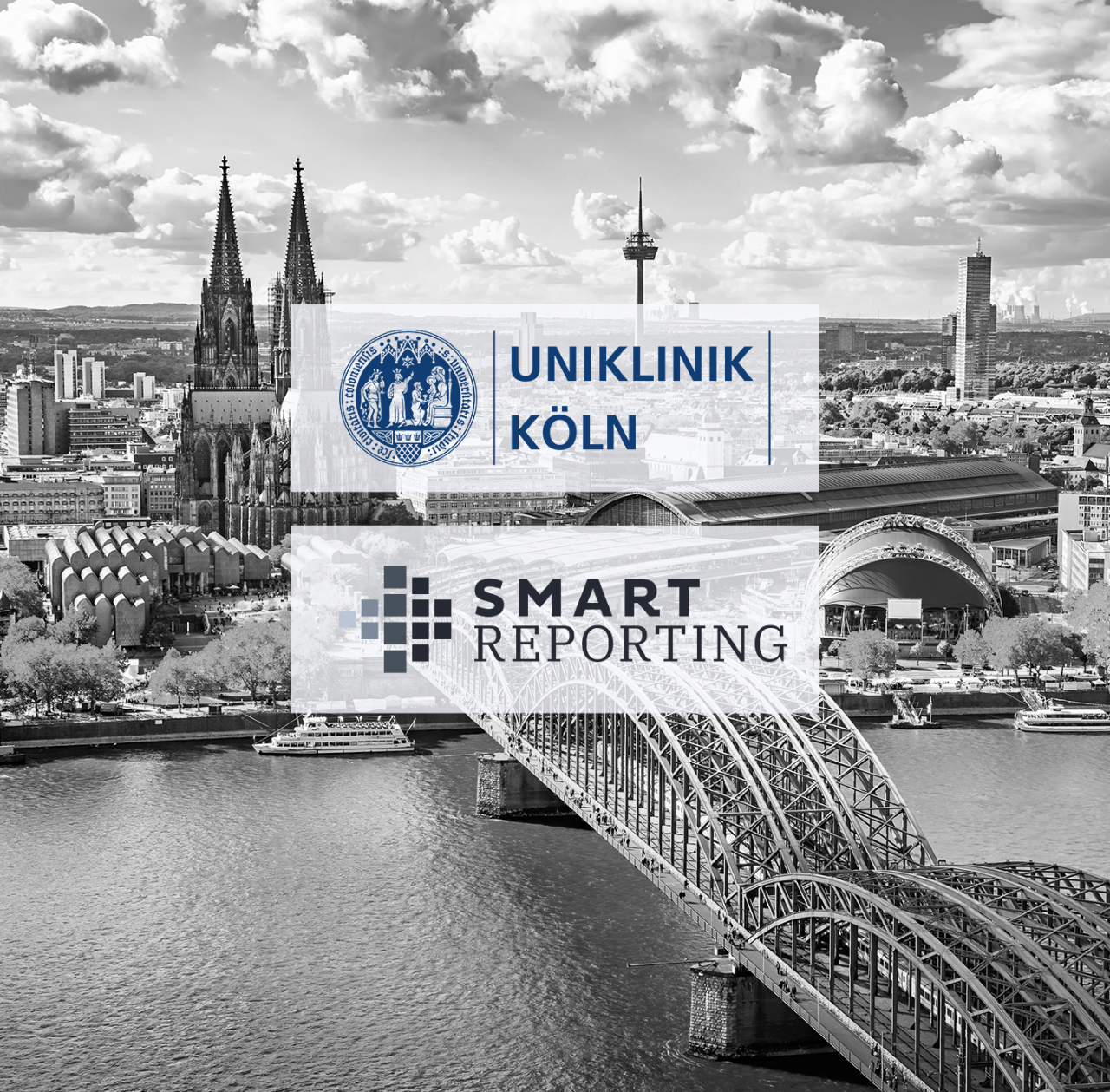1 min read
Structured reporting as a standard in interventional radiology
Thomas Doriath : 14 February 2022

The topic of structured reporting has been continuously discussed in recent years and is undoubtedly the necessary step towards a more time-efficient and forward-looking medical documentation. This is also the case at the Institute for Diagnostic and Interventional Radiology at the University Hospital in Cologne, where senior physician PH Dr. med. Alexander Bunck has already been working with various radiological structured reporting templates from the Munich-based company Smart Reporting since 2019.
Smart Reporting offers software which enables clinicians to produce structured medical reports and simultaneously captures structured and machine-readable data in the clinical routine. The physician can use a combination of free text and structured reporting templates to optimize his or her own workflow.
At the University Hospital of Cologne, templates are already in use for cardiac and vascular diagnostics and for various interventions, such as bleeding embolization or intracranial thrombectomy. The department-wide standardization of report generation and communication has significantly improved the radiology department's reports in terms of time efficiency, increased quality, and completeness. Referring physicians have stated that these reports are more comprehensive and clearer to understand. This is a great success, which has contributed significantly to the improvement in clinical routine and ultimately patient care.
Dr. Bunck enthusiastically reports on the establishment of structured reporting as a reporting standard in interventional radiology: "Interventions in interventional radiology generally follow well-standardized procedures. Especially in this field, the use of structured reporting is an optimal application for our report generation. An interface between structured findings and DEGIR* acquisition software would be desirable."
The University Hospital Cologne and Smart Reporting have been cooperating for multiple years on different topics and are planning to continue this partnership in the coming years. For example, there are plans to expand the intervention package to include templates for carotid stenting, uterine and prostate artery embolization, visceral stent implantation, thermal ablation, and PEG placement, among others.
And in addition to establishing a reporting standard in interventional radiology, the Smart Reporting reporting solution is also useful in training young physicians. "It helps young physicians develop a structured approach to image analysis and interpretation, identify the points relevant to reporting, focus on them, and leave out irrelevant information," Dr. Bunck said.
The list of advantages of a structured reporting solution is large and growing, and not limited to the field of radiology. Smart Reporting solutions are already successfully implemented in pathology and surgical ENT practices, and numerous other disciplines in the coming years.